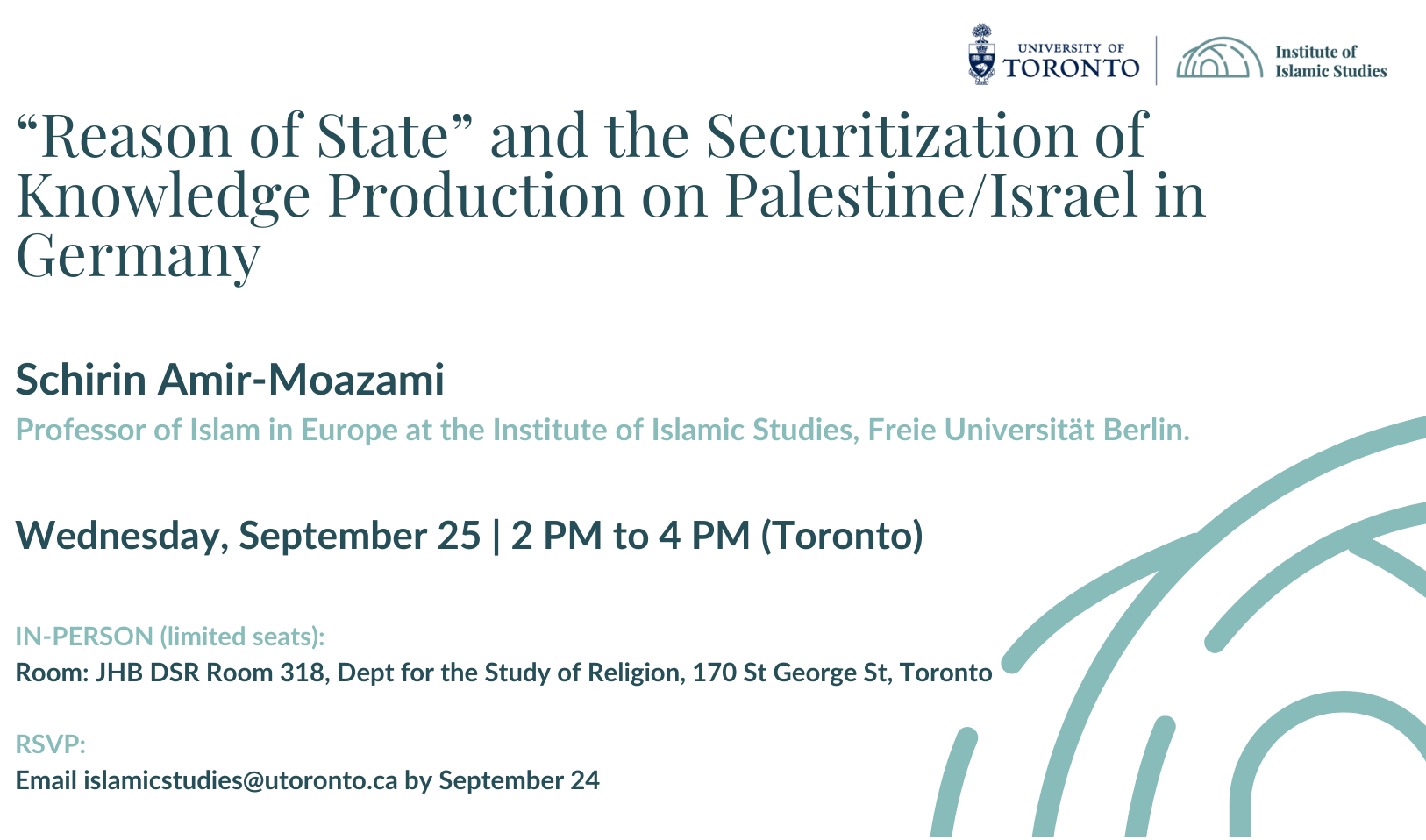“Reason of State” and the Securitization of Knowledge Production on Palestine/Israel in Germany
When and Where
Speakers
Description
 In a speech at the Knesset in 2008 on the occasion of the 60s anniversary of the founding of the state of Israel, then chancellor Angela Merkel spelled out publicly what had unofficially turned into a doctrine since the late 1950s in post-war Western Germany: “Every federal government and every chancellor before me was committed to Germany’s special historical responsibility for Israel’s security. This historical responsibility is part of my country’s reason of state. For me as German Chancellor, therefore, Israel’s security will never be open to negotiation.”
In a speech at the Knesset in 2008 on the occasion of the 60s anniversary of the founding of the state of Israel, then chancellor Angela Merkel spelled out publicly what had unofficially turned into a doctrine since the late 1950s in post-war Western Germany: “Every federal government and every chancellor before me was committed to Germany’s special historical responsibility for Israel’s security. This historical responsibility is part of my country’s reason of state. For me as German Chancellor, therefore, Israel’s security will never be open to negotiation.”
Ever since, political authorities across almost all political spectra have not missed any opportunity to reiterate their commitment to the Staatsräson (reason of state). On the level of foreign policy, the long-established military cooperation with Israel have been continuously intensified, diplomatic relations as well as educational and academic partnerships have gradually amplified (Asseburg and Busse 2011; Marwecki 2024: chap. 4).
In the fall of 2023, following the attacks of Hamas in the South of Israel, most political authorities repeated that “Israel and its security” will remain “German Staatsräson and a leitmotiv for our actions.” Numerous actors ranging from journalists to representatives of the German-Israeli Society to those of academic institutions joined the chorus and emphasized that it was time to translate the Staatsräson into “tangible action”. This announcement has contributed to temporarily suspend existing basic laws such as freedom of assembly, freedom of speech or academic freedom, to overlook international law like the various decisions by the International Court of Justice on the plausibility of genocide committed by Israel, or to create new laws (Traverso 2024), like the required confession of “Israel’s right to existence” for candidates applying to German nationality.
In its unconditional, indefinite promise to Israel’s security, Germany’s Staatsräson has not only been complicit with the destruction of Gaza, expulsions and mass killings of Palestinians, legitimized as “self-defense” or as the “war against Hamas”. It has also contributed to unleash and sustain far-reaching security measures and technologies of surveillance on the domestic level, including the control of knowledge production and circulation. In this paper I will analyze the Staatsräson as a security dispositive while paying particular attention at its implications for the securitization of knowledge production. I will unfold three interrelated arguments.
First, as a way of thinking and acting that is oriented at the “absolute value of the state and the idea of sovereign state power” (Rumpf 1980: 174) the Staatsräson enables the state to exempt from the rule of law at any time, if the security is considered at risk (Rumpf 1980; Michaels 2023). Even if by definition based on the virtue of reflexive reasoning, the Staatsräson can therefore turn into a repressive instrument that is first and foremost based in the interests of the (nation) state – or of another state for that matter.
Second, it is precisely because of its extra-legal character and its vagueness that the Staatsräson has triggered technologies of securitization which are first and foremost based on the menace of sanction and preventive repression. Because liberal freedoms are simultaneously praised, internal rebuke and public defamation have been the most common ways to delegitimize certain scholars or to discredit entire scholarships – like postcolonial studies – as complicit with “anti-Semitism”.
The weaponization of (Israel related) “anti-Semitism” reveals intimate connections to the “war against terror”, which has cyclically deployed its racializing logics since 9/11. Not everybody is thus equally targeted through the reason of state and its security apparatus. Arab, Muslim and especially Palestinian scholars and students are considered particularly suspicious. In a third step, I therefore argue that the securitization of knowledge and its surveilling practice are neither unprecedented nor merely effected by the particular Staatsräson of Israel’s security. Instead, they are animated by an epistemic order whose roots are colonial.


